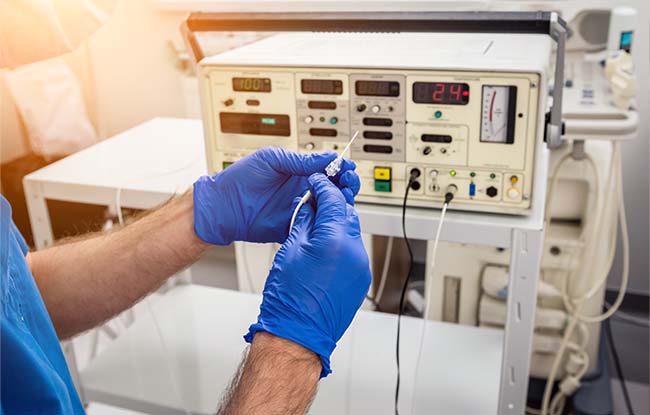Basivertebral Nerve Ablation or Intracept Procedure
Basivertebral Nerve Ablation or Intracept Procedure
Low back pain is a significant concern in the US. It is estimated that around 84% of people experience low back pain at some point. Sitting or standing poorly for long hours can strain your back. Worse, if you are not mindful and poor posture becomes part of your routine, it can show signs of wear and tear of the spine at some point. It is the most common problem; one should get timely medical attention. Low back pain symptoms include pain when sitting or resting for long periods when lifting something heavy, numbness or weakness, stiffness, etc. Your chronic pain can make your life miserable, disrupting your daily schedule. It eventually triggers stress, anxiety, etc., as you fall behind your schedule and cannot progress with your daily goals. Along with many other treatment methods, nerve ablation for chronic pain has become quite common. For low back pain, Basivertebral nerve (BVN) ablation is a minimally invasive procedure that targets basivertebral nerves responsible for transmitting pain signals from the vertebral bodies.

What are the Benefits of Basivertebral Nerve Ablation?
- Reduces or eliminates chronic pain
- Improves physical function and productivity
- Reduces any need for medication
How Does Basivertebral Nerve Ablation Work?
The healthcare practitioners will assess your medical history, condition, signs, and symptoms for a complete evaluation. Basivertebral nerve ablation treatment may not be suitable for everyone, so every individual is thoroughly examined and advised based on the severity of their condition. Then we prepare a comprehensive, personalized treatment plan based on individual needs. It is primarily an outpatient procedure; the patient can go home after completion, and the doctor thoroughly monitors their condition.
During the procedure, the patient is asked to lie down on their belly in a prone position under anesthesia. We constantly monitor the patient’s heart, pulse, and blood pressure while they undergo the procedure. The patient gets anesthesia to numb their skin. A small incision is made lower back to access the target vertebrae. With fluoroscopic guidance, a needle is guided into vertebrae to access the basivertebral nerve. Then the needle is removed, and a radiofrequency catheter is advanced. When the correct placement is confirmed, the tip of the catheter is heated to stop the BVN from transmitting pain signals. After the procedure, the tools are removed, and the incision is closed. The patient is moved to the recovery room immediately.
To learn if basivertebral nerve ablation can be helpful for your chronic back pain, reach out to ReMeDy Medical Group at (650) 306-9490.
